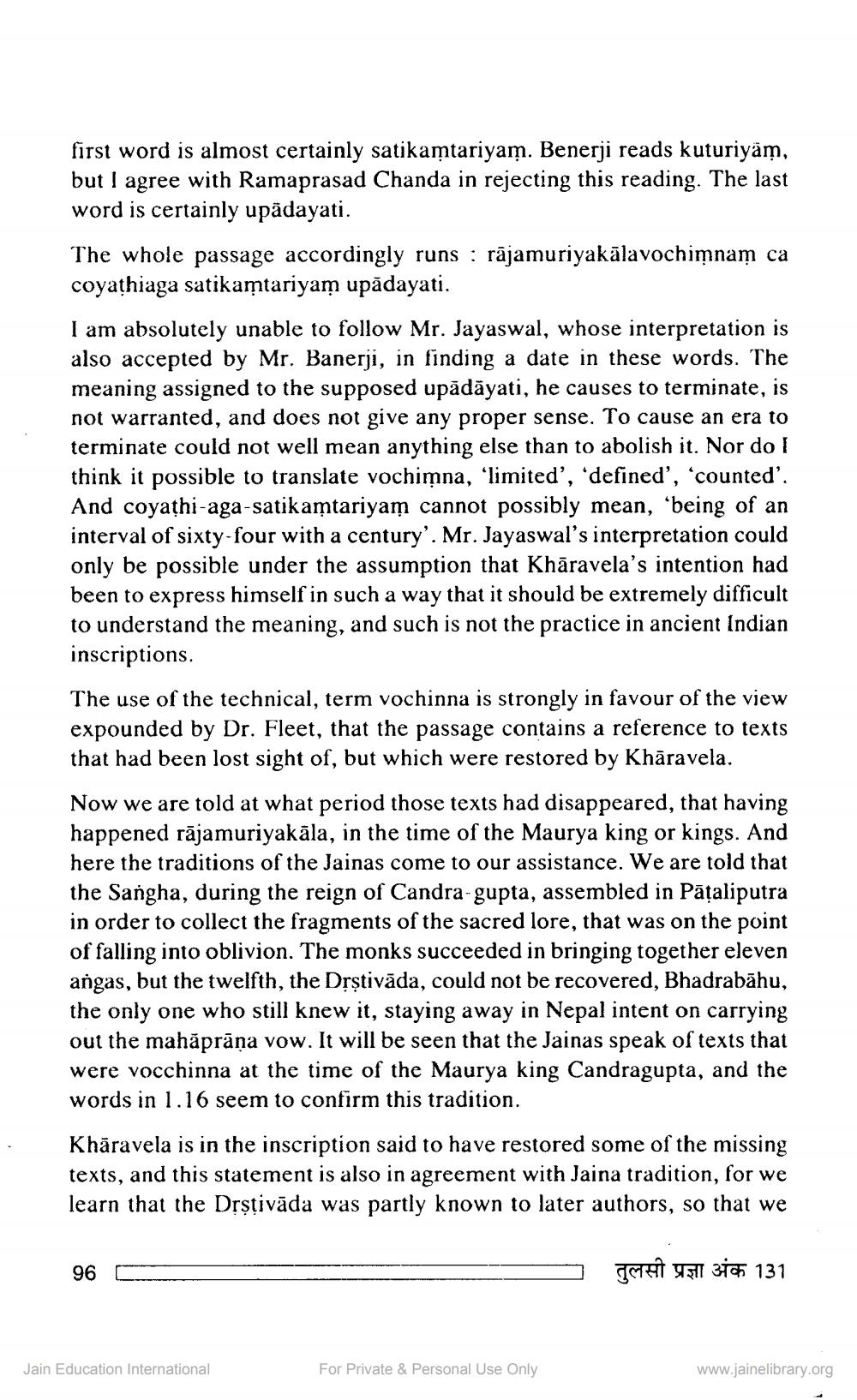________________
first word is almost certainly satikamtariyam. Benerji reads kuturiyam, but I agree with Ramaprasad Chanda in rejecting this reading. The last word is certainly upadayati. The whole passage accordingly runs : rājamuriyakālavochimnam ca coyathiaga satikamtariyam upādayati. I am absolutely unable to follow Mr. Jayaswal, whose interpretation is also accepted by Mr. Banerji, in finding a date in these words. The meaning assigned to the supposed upādāyati, he causes to terminate, is not warranted, and does not give any proper sense. To cause an era to terminate could not well mean anything else than to abolish it. Nor do I think it possible to translate vochimna, ‘limited', 'defined', 'counted'. And coyathi-aga-satikamtariyam cannot possibly mean, 'being of an interval of sixty-four with a century'. Mr. Jayaswal's interpretation could only be possible under the assumption that Khāravela's intention had been to express himself in such a way that it should be extremely difficult to understand the meaning, and such is not the practice in ancient Indian inscriptions.
The use of the technical, term vochinna is strongly in favour of the view expounded by Dr. Fleet, that the passage contains a reference to texts that had been lost sight of, but which were restored by Khāravela.
Now we are told at what period those texts had disappeared, that having happened rājamuriyakāla, in the time of the Maurya king or kings. And here the traditions of the Jainas come to our assistance. We are told that the Sangha, during the reign of Candra-gupta, assembled in Pāļaliputra in order to collect the fragments of the sacred lore, that was on the point of falling into oblivion. The monks succeeded in bringing together eleven angas, but the twelfth, the Drștivāda, could not be recovered, Bhadrabāhu, the only one who still knew it, staying away in Nepal intent on carrying out the mahăprāna vow. It will be seen that the Jainas speak of texts that were vocchinna at the time of the Maurya king Candragupta, and the words in 1.16 seem to confirm this tradition. Khāravela is in the inscription said to have restored some of the missing texts, and this statement is also in agreement with Jaina tradition, for we learn that the Drstivāda was partly known to later authors, so that we
96
C
-
JAHTUE 316 131
Jain Education International
For Private & Personal Use Only
www.jainelibrary.org




